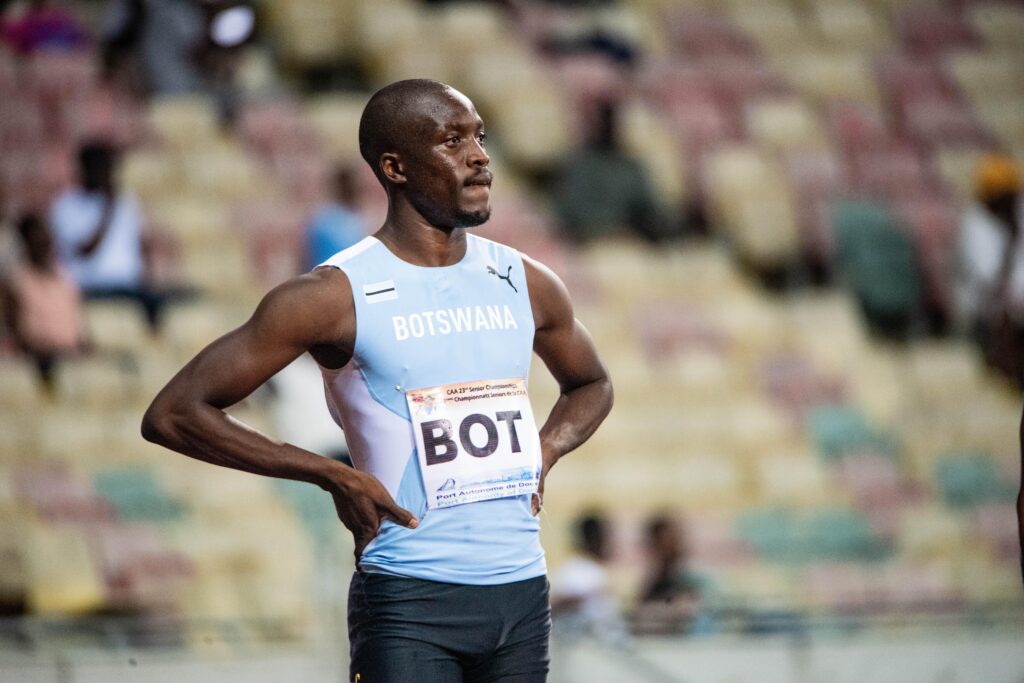Botswana’s sprint sensation Letsile Tebogo is emerging as one of the most promising athletes on the global stage ahead of the upcoming Olympic Games. At just 21 years old, Tebogo has already shattered records and captured international attention with his blistering speed. Yet, beyond his personal ambitions, he is calling for a transformative shift within African athletics, aiming to elevate the continent’s presence and competitiveness in the sport. This article explores Tebogo’s journey, his Olympic aspirations, and his vision for change in African track and field.
Letsile Tebogo’s Rise Signals New Era for Botswana Sprinting
Letsile Tebogo has rapidly transformed from a promising junior athlete into a symbol of hope for Botswana’s sprinting future. His impressive displays on the international stage have not only raised the bar for local athletes but have also spotlighted Botswana as an emerging powerhouse in sprint events traditionally dominated by other African nations. Tebogo’s dedication to excellence, combined with his historic break of the 10-second barrier, marks a watershed moment that signals a new, competitive era in African athletics.
Beyond his personal achievements, Tebogo advocates for systemic changes across the continent’s athletic infrastructure. He emphasizes the need for:
- Enhanced coaching programs to nurture young talent from an early age
- Improved training facilities that meet international standards
- Greater investment and sponsorships to support athletes financially
- Stronger collaboration between African nations to share resources and knowledge
His voice resonates with a new generation of athletes determined to rewrite the continent’s sprinting narrative and achieve sustained success on the world stage.
Challenges Facing African Athletics from Infrastructure to Investment
The pathway to global athletic success in Africa remains riddled with complex obstacles that extend beyond raw talent. While athletes like Letsile Tebogo demonstrate world-class potential, many face difficulties stemming from inadequate training facilities, subpar stadium infrastructure, and limited access to high-performance technology. In many regions, tracks are poorly maintained, equipment is outdated, and basic amenities are lacking, hindering daily preparation and increasing injury risks. Moreover, the absence of structured sports academies and insufficient grassroots programs stifle the development of young talent, preventing promising athletes from receiving the guidance and resources necessary to excel on the world stage.
Investment shortfalls compound these infrastructural challenges, leaving African athletics underfunded compared to other continents. Consistent financial backing is crucial for coaching, international competition exposure, and nutritional support. The following table highlights disparities in annual athletics funding between select African countries and their global counterparts:
| Country | Annual Athletics Investment (Approx. USD millions) |
Elite Athlete Support Programs |
|---|---|---|
| Botswana | 4.2 | Limited |
| Kenya | 8.5 | Moderate |
| Jamaica | 30.0 | Extensive |
| USA | 150.0 | Comprehensive |
For African athletes to truly challenge the world’s best, there must be a shift toward strategic partnerships, greater corporate sponsorship, and government commitment. Boosting financial inflows will enable development of cutting-edge infrastructure, professional coaching frameworks, and holistic athlete welfare programs. Without such changes, the continent’s immense natural talent risks being overshadowed by systemic shortcomings.
Calls for Strategic Reforms to Elevate Africa’s Global Track and Field Status
Letsile Tebogo, Botswana’s sprint sensation and a prominent figure at the recent Olympic Games, has publicly voiced the urgent need for transformative changes within African athletics. He argues that despite the continent’s rich pool of raw talent, systemic challenges continue to hinder athletes from reaching their full potential on the international stage. Tebogo highlights that investment in infrastructure, coaching, and athlete welfare remains inconsistent across many African nations, limiting progress and competitiveness globally.
Key areas identified for strategic overhaul include:
- Enhanced training facilities to provide world-class environments for athlete development.
- Improved coaching certification programs to elevate technical standards across countries.
- Greater financial support aimed at grassroots and elite levels alike to secure athlete sustainability.
- Strengthened regional competitions to foster higher levels of competition and talent identification.
| Challenge | Current Status | Proposed Reform | |||||||||||||||
|---|---|---|---|---|---|---|---|---|---|---|---|---|---|---|---|---|---|
| Training Facilities | Uneven availability, outdated equipment | Upgrades & new builds across key regions | |||||||||||||||
| Coaching | Limited certified experts | Standardized training & certification |
| Challenge | Current Status | Proposed Reform |
|---|---|---|
| Training Facilities | Uneven availability, outdated equipment | Upgrades & new builds across key regions |
| Coaching | Limited certified experts | Standardized training & certification |
| Financial Support | Inconsistent funding at grassroots and elite levels | Dedicated budget lines and athlete sponsorship programs |
| Regional Competitions | Limited frequency and coverage | Regular, well-organized regional meets to boost competition |
If you’d like me to assist with anything else, such
The Way Forward
As Letsile Tebogo continues to rise on the global sprinting stage, his ambitions extend beyond personal glory. The Botswana sprinter’s call for reform in African athletics highlights the need for greater investment, structured development, and fairer opportunities across the continent. As Tebogo prepares for the next Olympic Games, his journey symbolizes both the promise and the challenges facing African sprinting – a story of talent striving for recognition amid a landscape ripe for change.





